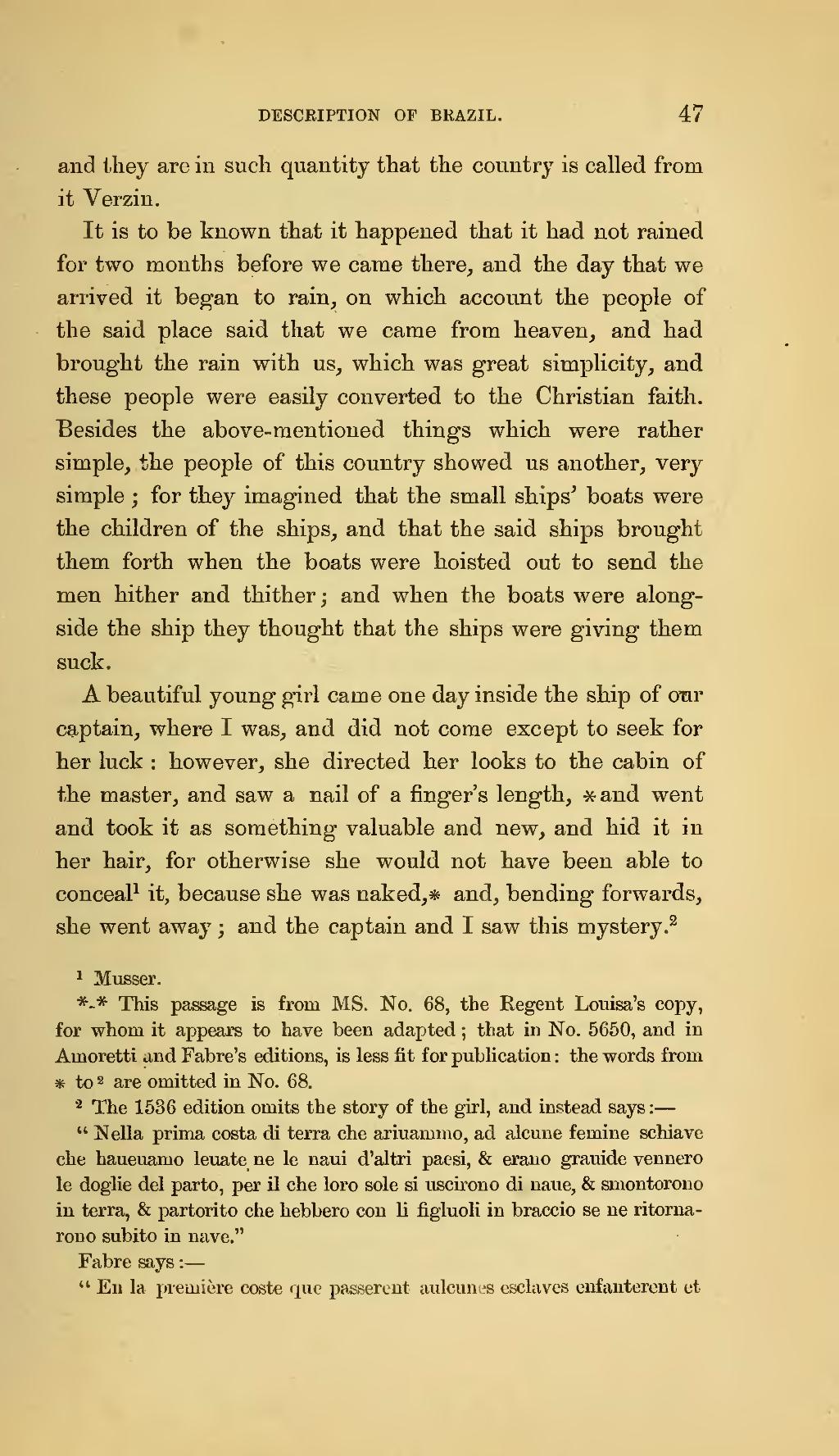and they are in such quantity that the country is called from it Verzin.
It is to be known that it happened that it had not rained for two months before we came there, and the day that we arrived it began to rain, on which account the people of the said place said that we came from heaven, and had brought the rain with us, which was great simplicity, and these people were easily converted to the Christian faith. Besides the above-mentioned things which were rather simple, the people of this country showed us another, very simple; for they imagined that the small ships' boats were the children of the ships, and that the said ships brought them forth when the boats were hoisted out to send the men hither and thither; and when the boats were alongside the ship they thought that the ships were giving them suck.
A beautiful young girl came one day inside the ship of our captain, where I was, and did not come except to seek for her luck: however, she directed her looks to the cabin of the master, and saw a nail of a finger's length, *and went and took it as something valuable and new, and hid it in her hair, for otherwise she would not have been able to conceal[1]it, because she was naked,* and, bending forwards, she went away; and the captain and I saw this mystery.[2]
- ↑ Musser
*-* This passage is from MS. No. 68, the Regent Louisa's copy, for whom it appears to have been adapted; that in No. 5650, and in Amoretti and Fabre's editions, is less fit for publication: the words from * to ² are omitted in No. 68. - ↑ The 1536 edition omits the story of the girl, and instead says:—
"Nella prima costa di terra che ariuammo, ad alcune femine schiavo che haueuamo leuate ne le naui d'altri paesi, & erano grauide vennero le doglie del parto, per il che loro sole si uscirono di naue,& smontorono in terra, & partorito che hebbero con li figluoli in braccio se ne ritornarono subito in nave."
Fabre says:—
"En la premiere coste que passerent aulcunes esclaves enfanterent et
